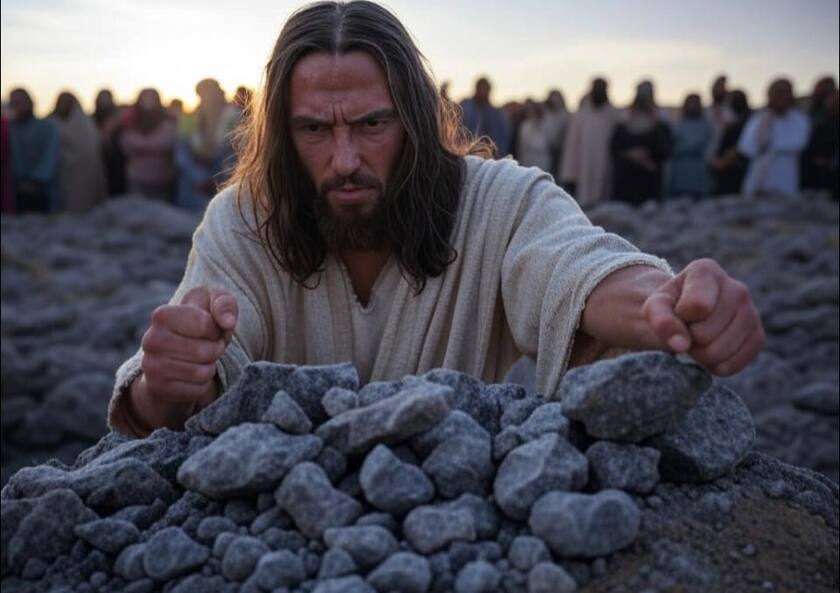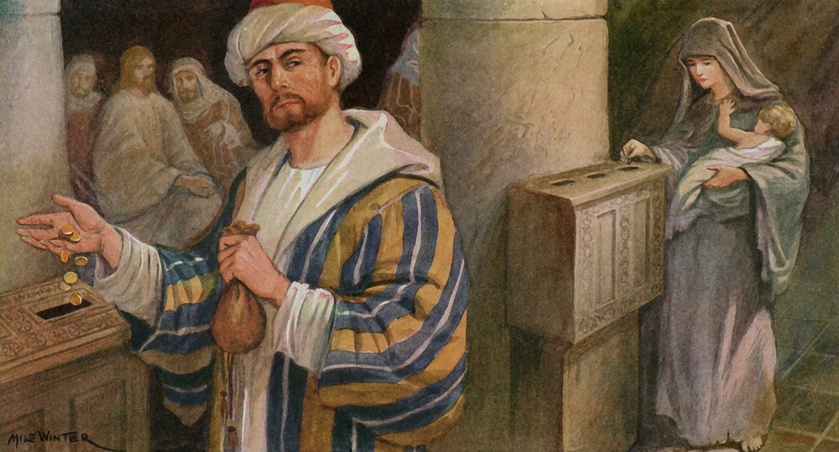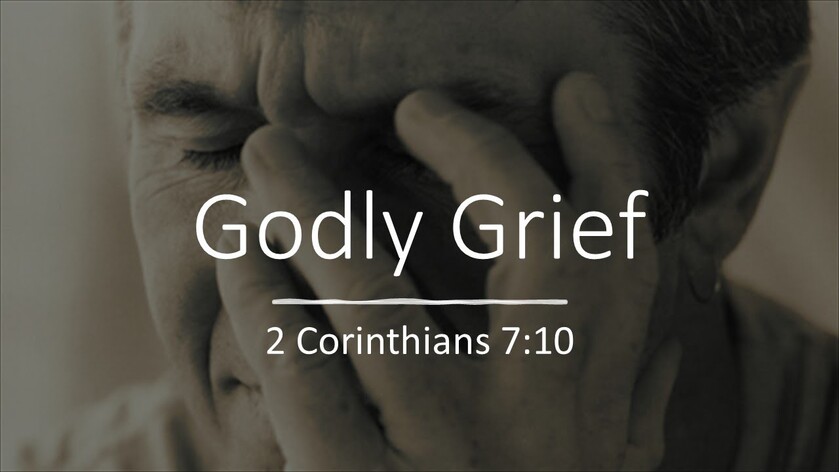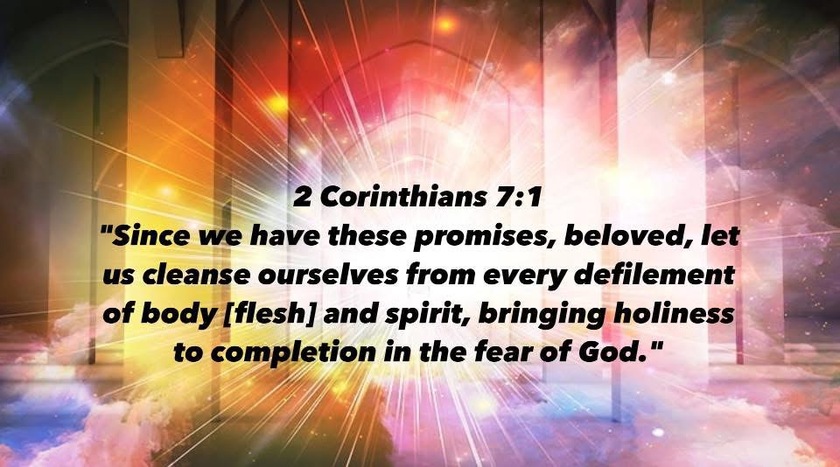Luke 20:18
"Everyone who falls on that stone will be broken to pieces, and when it falls on anyone, it will crush him."
In this parable, Jesus describes a vineyard owner (representing God) who rents his vineyard to tenants (symbolizing the religious leaders of Israel). When the owner sends servants (the prophets) and later his son (Jesus) to collect the harvest, the tenants mistreat them and kill the son. Jesus concludes the parable by saying the owner will destroy the tenants and give the vineyard to others.
After this the Sanhedrin sends spies to infiltrate the followers and watch Jesus. They're like the "Fed's" we see today, spying on Conservatives, and they try to set up scenarios that will catch Jesus in the act of sedition.
And so, Jesus tells the crowds this parable and finishes the story with this scripture focus that we're examining today. Here, "that stone" refers to Jesus himself, often identified in Christian theology as the "cornerstone" (a reference to Old Testament imagery, like Psalm 118:22 and Isaiah 8:14-15). The cornerstone was a foundational stone in ancient buildings, critical for stability, but also something one could stumble over or be crushed by if it ever fell. This suggests that those who reject or stumble over Jesus, opposing his message and authority, will face spiritual brokenness or even judgment. It implies a self-inflicted consequence for resisting him.
But the statement goes further,
"and when it falls on anyone, it will crush him."
This points to a more active judgment, where Jesus, as the cornerstone, ultimately brings decisive consequences to those who persist in rebellion against God. It’s a warning about divine retribution.
The “broken to pieces” versus “crush” distinction is key. Falling on the stone might imply a chance for repentance, brokenness can lead to humility or realization (think of how some, like Paul, were "broken”" into faith). Myself included among that bunch. But when the stone falls, it’s final, like the destruction of the temple in AD 70, which some see as a historical echo of this judgment on Jerusalem’s leaders. For the Sanhedrin, rejecting Jesus didn’t just bruise their egos; it sealed their fate.
Which brings us to another story:
Luke 20:27-40
There came to him some Sadducees, those who deny that there is a resurrection, and they asked him a question..."
The Sadducees step up to challenge Jesus after the Sanhedrin’s spies fail to trap him. This encounter is a fascinating clash of theology and wit, and it builds on the tension from the Parable of the Wicked Tenants. In Luke 20:27-40, they approach Jesus with a hypothetical scenario designed to mock the concept of the resurrection, which he’d implicitly endorsed. They try this by using a hypothetical scenario about marriage. Their argument is somewhat similar to this.
Let's say a soldier is in battle in a field. He's overcome by his enemy and dies there on that field. In time his dead body decays and the elements that make up his flesh become a part of the soil beneath him. In time all that is left are his bones. And then a grass seed falls upon the ground and sprouts there. Its roots grow and take up the elements of the soldier into itself, nurturing the grass and helping it to thrive and bloom. Later a cow comes along and eats the grass, taking the soldiers and the grasses elements into itself and nourishing it and helping it to grow and thrive. Then the army's quartermaster butchers the cow to feed his troops and the elements of the first soldier, the grass and the cow are now nurturing the bodies of the whole army.
And so, the question then becomes in the minds of the Sadducees, in the resurrection, whose body will be raised?
Just as they questioned Jesus about the seven-brothers-and-one-wife scenario to poke holes in the idea of a bodily afterlife, this soldier-grass-cow-army chain challenges the logistics of a physical resurrection, how can a body be "raised" if its elements are scattered and get recycled across nature and through other people?
Jesus’ response to the Sadducees in Luke 20 offers a framework to tackle my grass-cow-soldier story too. He doesn’t get bogged down in the mechanics of decomposing bodies or redistributed atoms, or in regard to the question of marriage. Instead, he shifts the focus to the nature of the resurrection itself.
In Luke 20:35-36, he says those in the resurrection:
"neither marry nor are given in marriage, for they cannot die anymore, because they are equal to angels and are sons of God."
He's teaching us about our eternal spiritual life. A life not lived in the flesh in the same way we live now. It's not about the elements and social processes anymore. It's not about marriage and family. The point is that the resurrection isn’t about piecing together the exact molecules of our earthly bodies or our former lives, it’s a transformation into a new kind of existence, beyond the limits of this age’s biology and sociology.
In regard to my grass-cow-soldier scenario, the elements of his flesh, carbon, nitrogen, whatever, all the nutrition that all life requires might cycle through soil, grass, cows, and other soldiers, but resurrection isn’t a scavenger hunt for those original bits and pieces. It’s God re-creating the person into a glorified, imperishable form.
Think about
1 Corinthians 15:42-44
"So is it with the resurrection of the dead. What is sown is perishable; what is raised is imperishable. It is sown in dishonor; it is raised in glory. It is sown in weakness; it is raised in power. It is sown a natural body; it is raised a spiritual body. If there is a natural body, there is also a spiritual body."
Paul describes the resurrected body as "spiritual" yet real, like a seed becoming a plant. It enters the soil in one form and grows into a different form. The soldier’s identity, his "self", his spirit, gets raised, not a clump of cells and nutrients. So, the question "whose body will be raised?" misses the mark. God isn’t reconstituting a finite pile of atoms; He’s remaking the soldier anew into a spiritual body.
So, the flesh isn't immortal and therefore ultimately unimportant. It's like fading grass, it's described as "perishing".
Take Isaiah 40:6-8:
"All flesh is grass, and all its beauty is like the flower of the field. The grass withers, the flower fades…but the word of our God will stand forever."
1 Peter 1:24-25, echoes that:
"All flesh is like grass…the grass withers, and the flower falls."
The term "perishing" fits too, John 10:28 has Jesus saying his sheep won’t "perish," meaning their true life (beyond the flesh) is secure in the spirit, it doesn't mean that their bodies won’t die.
The soldier's body decays, feeds the soil, nourishes grass, cows, and other bodies. It’s fleeting, recyclable, it's "fading grass." The Sadducees’ obsession with physical continuity (who gets the wife? whose body is it?) misses that the flesh’s impermanence isn’t a flaw in the resurrection; it’s the point of it.
The body we get in the resurrection isn’t the old flesh patched up, it’s a new creation, imperishable, suited for eternity with Christ. The soldier’s elements being scattered doesn't threaten God’s ability to raise him; they prove the flesh was never the final story. Whether buried in the ground, lost at sea, or cremated remains, the human body isn't what's raised up in the resurrection.
The Sadducees stumble here because they can’t imagine beyond the grass that fades. They’re stuck on the perishable, and that’s why they’re "broken" on the stone. They can’t fathom a reality where the flesh’s fate is irrelevant because God’s power transcends it. That’s their "falling on the stone", their narrow vision breaks them, while Jesus points to something bigger. They’re arguing about a decaying husk when Jesus is talking about a harvest.
So why do they break on the stone?
Why stumble when it's so clear?
The answer is the age old problem, it's about religion. Their theology was rigid. They clung to the Torah, the so called Pentateuch, as the sole authoritative scripture. They rejected the broader oral traditions and later writings (like the Prophets). And of course they reject the gospels. The Sadducees’ strict literalism boxed them in, like pragmatic people and atheists. They wouldn’t speculate beyond what they saw as clear, and the flesh’s decay seemed final to them. No resurrection, no angels, no afterlife, just this life, then dust. And because of their social status they had a vested interest in the here-and-now.
It’s like they lacked the imaginative bandwidth to leap from "grass that fades" to a reality where God remakes what’s been lost. What that says to me is they lacked faith. Their theology, status, and materialism all point to a deeper issue: they didn’t trust God to act beyond what their eyes could verify or their hands could control. Torah text can be parsed, Temple rituals can be managed and performed. Power can be wielded. But resurrection demands a belief in God’s power to do what’s impossible by these human measures. And we even see this at work today in many religious organizations.
In their minds, God is a loose cannon. They trust instead the systems they can see and touch: the Torah’s ink, the Temple’s stones, the clout of their Roman alliances. Resurrection, though?
In their world, God was predictable, and bound by the systems they’d mastered. God played from their gameplan. But the resurrection? That’s God going off-script, busting through death, rewriting reality, and doing it without their permission or their input. And that's the real problem for them. God's creativity is unpredictable and cannot be measured and controlled. His resurrection threatens and frightens them.
Jesus concludes his story with this profound revelation:
Luke 20:38
"Now he is not God of the dead, but of the living, for all live to him."
It’s not just a mic-drop against their arguments; it’s a window into who God really is. Jesus says God is the God of the living, sustaining Abraham, Isaac, and Jacob even now, because "all live to him." It’s not about corpses staggering out of tombs; it’s about a living relationship with a God who defies the grave’s finality. It's not just about some future time, it's about the here-and-now. God’s creativity keeps people alive to him, today and beyond flesh, beyond their Temple’s reach, and that's what frightens them. God's resurrection threatens their grip on the religion and it proves their power is an illusion. Jesus isn’t just arguing theology here; he’s revealing a God too big for their box, and it’s why they’re left speechless.
Speechless yes, but there's more:
After the Sadducees are silenced, some Scribes nod in approval,
"Teacher, you have spoken well" (Luke 20:39),
and Jesus doesn’t let the moment settle. He’s got their attention now, and he uses it to push even deeper. He goes after these Scribes and their religious and social habits. It’s a brilliant move. The scribes liked his smackdown of the Sadducees, but now he’s challenging everyone’s assumptions; the Sadducees, Pharisees, Scribes, the crowd; challenging them all about their understanding of the Messiah.
Jesus points to the Scribes treatment of the widows and their many pretentious and long prayers. He describes them as hypocrites, projecting piety while devouring widows' houses and exploiting their vulnerabilities. Their fancy robes, prime seats at the feasts, and their marketplace clout all depends on a system that grinds down the weak.
And Jesus calls them out and assigns to them "greater condemnation" which brings us back round to where we began,
"and when it falls on anyone, it will crush him."
When he says they’ll "receive the greater condemnation" (Luke 20:47), it’s not just a vague threat, it’s the second half of that earlier warning.
The Scribes aren’t merely broken by their own resistance, like those who "fall on the stone"; they’re facing the active judgment of the cornerstone himself dropping on them and grinding them into submission. The same power that raises the dead, will flatten their whole rotten setup.
The Sadducees feared a "loose cannon" God who they couldn’t control, and the Scribes built for themselves a world where they could play God. Both miss the real God, the One of the living, who won’t let their systems stand.
I think what we're seeing here is Jesus having had enough of these people. He's done with the parables and the politics. He's come to set the whole thing apart. It's interesting in that these people who love stoning those who commit crimes against their religion are now hearing about how they will face a stoning that will crush them completely. Eternally.
It’s a full circle reckoning.




















